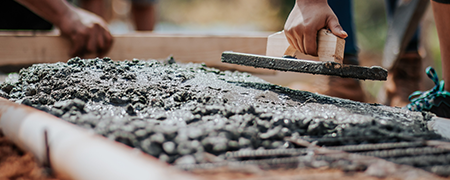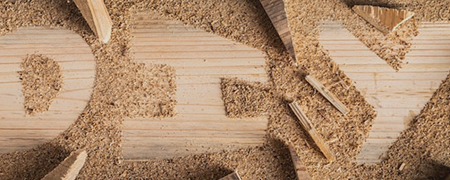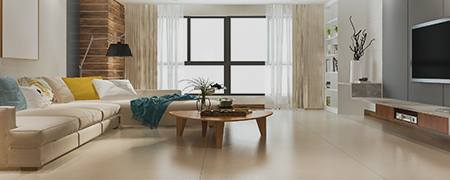Concrete Countertops: Stylish and Durable Kitchen Surfaces
Concrete countertops have gained significant popularity in recent years as a stylish and durable alternative to traditional countertop materials. Offering versatility in design, excellent longevity, and a distinctive industrial appeal, concrete countertops have become a sought-after choice for homeowners looking to elevate their kitchen aesthetics. In this article, we will explore the various aspects of concrete countertops, including their benefits, installation process, maintenance, cost considerations, design ideas, environmental impact, and common concerns.
Benefits of Concrete Countertops
Concrete countertops offer a range of benefits that contribute to their increasing popularity in kitchen design. Firstly, their durability is a standout feature. Concrete, when properly installed and sealed, can withstand daily wear and tear, including cuts, heat, and impact. This longevity ensures that your investment in concrete countertops will serve you well for years to come.
Additionally, concrete countertops provide endless customization options. The material can be poured and molded into any shape or size, allowing for unique designs tailored to individual preferences. From integrated sinks and appliances to intricate edge profiles, concrete countertops offer unparalleled versatility in kitchen design.

Moreover, concrete countertops present a distinctive style and aesthetic appeal. The raw, industrial look of concrete lends a modern and minimalist touch to any kitchen. The material’s inherent variations in color, texture, and patterns add character and depth to the countertop, creating a truly personalized and eye-catching centerpiece.
Lastly, concrete countertops exhibit excellent heat resistance. Unlike some other materials, concrete can withstand high temperatures without warping or discoloration, making it ideal for placing hot pots and pans directly on the surface.
Installation Process
The installation process of concrete countertops involves several key steps to ensure a successful and long-lasting result. Firstly, choosing the right concrete mix is crucial. The mix should have the appropriate ratio of cement, aggregates, and additives to achieve the desired strength, workability, and appearance.
Once the mix is determined, the countertop is formed using melamine or other suitable materials. The formwork serves as a mold that defines the shape and size of the countertop. Reinforcement, such as steel mesh or fiberglass, is added to enhance the structural integrity of the countertop and prevent cracking.
Next, the concrete is poured into the formwork and carefully leveled. The surface is then finished using techniques like troweling, polishing, or acid staining, depending on the desired aesthetic. This step is crucial in achieving a smooth and visually appealing surface.
Maintenance and Care
To ensure the longevity and pristine appearance of concrete countertops, proper maintenance and care are essential. Sealing the countertop is a crucial step to protect it from stains, moisture penetration, and potential damage. Various sealers are available, including topical sealers and penetrating sealers, each offering different levels of protection and sheen.

Regular cleaning is straightforward and typically involves using a mild soap or specialized concrete cleaner and a non-abrasive cloth or sponge. Avoid using harsh chemicals or abrasive cleaners, as they can damage the sealer and the surface. Wiping up spills promptly and using cutting boards and trivets for food preparation and hot items can help prevent stains and scratches.
Cost Considerations
The cost of concrete countertops can vary depending on several factors. The size, complexity of design, chosen finishes, and additional features like integrated sinks or decorative inlays all contribute to the overall cost. While concrete countertops can be comparable in price to high-end materials like granite or quartz, they offer unique design possibilities that may justify the investment for many homeowners.
Comparing concrete countertops to other materials, such as granite or solid surface, involves weighing the pros and cons of each option. Concrete provides a level of customization that is often unmatched by other materials, making it an appealing choice for those seeking a truly personalized kitchen.
Design Ideas and Trends
Concrete countertops offer an extensive range of design possibilities. Beyond the traditional gray hue, concrete can be pigmented in various colors, allowing for endless customization options to suit any kitchen style. Popular choices include soft neutrals, earthy tones, and even vibrant hues to create bold statements.

Integrating sinks and appliances seamlessly into the countertop is another design trend gaining traction. By incorporating these elements into the concrete, a streamlined and cohesive look is achieved, eliminating seams and creating a visually clean and modern aesthetic.
Additionally, choosing the right edge profile for the countertop can significantly impact the overall design. Options such as bullnose, beveled, or chiseled edges offer different levels of sophistication and can be tailored to complement the desired kitchen style.
Environmental Impact
Concrete countertops can also be a sustainable choice for environmentally-conscious homeowners. Using locally sourced materials and employing responsible manufacturing practices can minimize the carbon footprint associated with concrete production. Furthermore, the long lifespan of concrete countertops reduces the need for replacements, contributing to waste reduction and resource conservation.
Common Concerns and Misconceptions
Addressing common concerns and misconceptions surrounding concrete countertops is important for potential buyers. One concern is the possibility of cracking. While concrete can develop hairline cracks over time, proper installation, reinforcement, and regular maintenance can minimize this risk. It is essential to follow care instructions and avoid placing excessive weight or applying sharp impacts to prevent damage.
Another misconception is the weight and load capacity of concrete countertops. Although concrete is a dense material, modern construction techniques ensure that countertops are reinforced adequately to support typical kitchen activities. However, consulting with professionals or structural engineers is recommended for specific cases that involve extraordinary weight requirements.
Lastly, some homeowners worry about the resale value of concrete countertops. While individual buyer preferences may vary, concrete countertops are generally well-regarded for their durability, style, and uniqueness. They can be attractive selling points for potential buyers looking for a distinctive and modern kitchen feature.
Conclusion
Concrete countertops offer a stylish and durable solution for kitchen surfaces. Their durability, customizability, heat resistance, and distinctive aesthetics make them a popular choice among homeowners. With proper installation, maintenance, and care, concrete countertops can provide years of functional and visually appealing surfaces in the heart of the home.
FAQs
Q: Are concrete countertops prone to cracking?
A: While concrete countertops can develop hairline cracks over time, proper installation, reinforcement, and regular maintenance can minimize this risk.
Q: Can I place hot pots and pans directly on concrete countertops?
A: Yes, concrete countertops exhibit excellent heat resistance and can withstand placing hot pots and pans directly on the surface without warping or discoloration.
Q: How often do concrete countertops need to be resealed?
A: The frequency of resealing concrete countertops depends on various factors, such as the type of sealer used and the level of usage. Generally, it is recommended to reseal every 1 to 3 years.
Q: Are concrete countertops more expensive than granite?
A: Concrete countertops can be comparable in price to high-end materials like granite. The cost depends on factors such as size, complexity of design, chosen finishes, and additional features.
Q: Can I install concrete countertops myself?
A: While DIY installation is possible for those with experience in concrete work, it is recommended to hire professionals for precise and reliable results.




